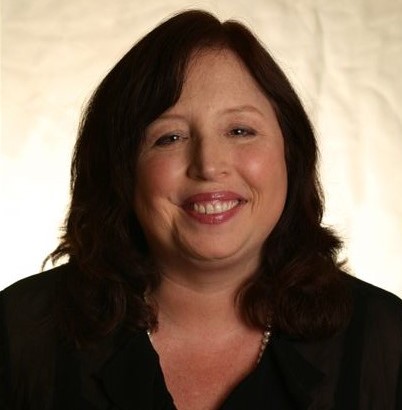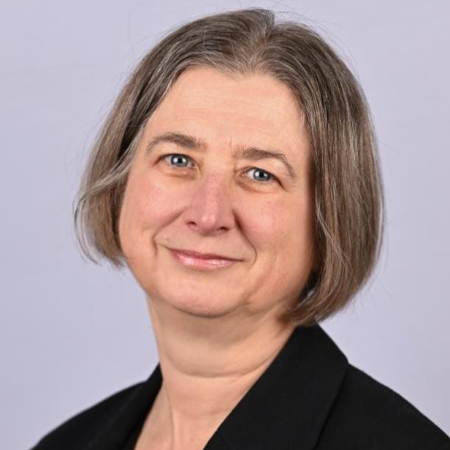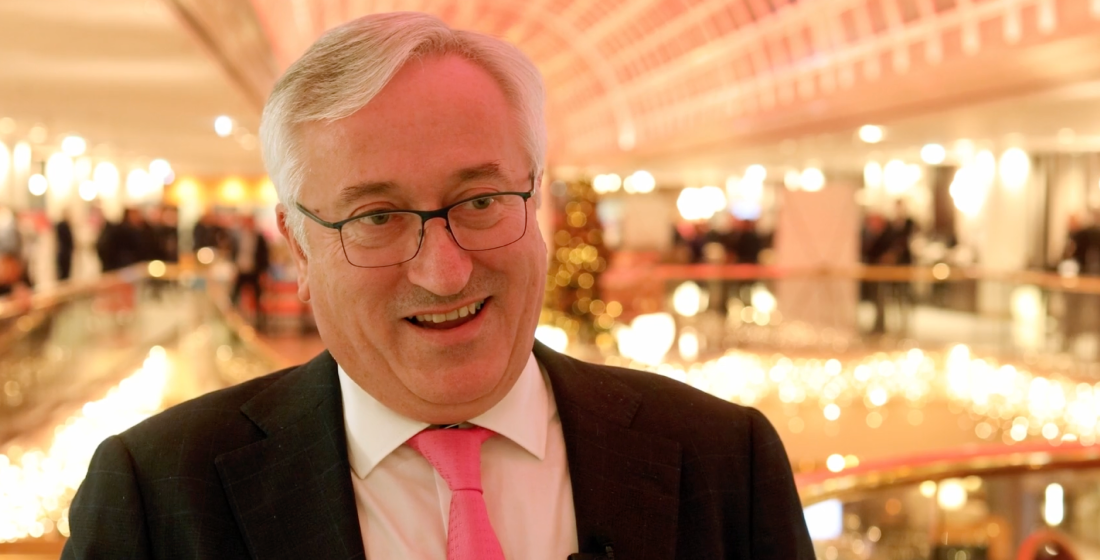Xylem and Citi on sustainability and trade: Transparency is key
Jump right in and take sustainability to where the client is at in their journey. That’s the strong message of TXF’s discussion with Donna Laviolette, Senior Manager, Global Sustainability at Xylem and Donna McNamara, Global Head, Trade Product Commercialization, Treasury and Trade Solutions at Citi, hosted by Citi. How does financing trade sustainably work in practice?

TXF: Sustainable finance is becoming a requirement for trade. What has Xylem's journey to improving ESG (environment, social and governance) been in recent years? Are corporates leading or following their banks in this?
 Donna Laviolette (DL): Xylem has an advantage; because, the business we're in is water. So, sustainability comes naturally to us and our customers. It's inherent in what we do every day. When we developed our sustainability strategy, we did it around three areas. The first one is building a sustainable company. The second is our customers. And the third is the communities we all serve. We are working to make meaningful impact in helping our customers achieve their sustainability challenges, knowing that will have a positive impact on communities. That means we look at sustainability holistically, including by integrating it into our financing strategy.
Donna Laviolette (DL): Xylem has an advantage; because, the business we're in is water. So, sustainability comes naturally to us and our customers. It's inherent in what we do every day. When we developed our sustainability strategy, we did it around three areas. The first one is building a sustainable company. The second is our customers. And the third is the communities we all serve. We are working to make meaningful impact in helping our customers achieve their sustainability challenges, knowing that will have a positive impact on communities. That means we look at sustainability holistically, including by integrating it into our financing strategy.
TXF: Does this chime with your experience at Citi, and what sort of sectors and supply chains and geographies are being most responsive?
 Donna McNamara (DM): What Donna is doing with Xylem, we're seeing across our client base. We see a move from the corporate client base to look at what their Scope 3 [Greenhouse Gas (GHG) Protocol defines Scope 3 emissions as ‘all indirect emissions that occur in the value chain of the reporting company, including both upstream and downstream’] and supply chain is and at their suppliers, and looking at that Scope 3 through a sustainability lens. We've seen a lot of movement and focus on that over the past 18 months.
Donna McNamara (DM): What Donna is doing with Xylem, we're seeing across our client base. We see a move from the corporate client base to look at what their Scope 3 [Greenhouse Gas (GHG) Protocol defines Scope 3 emissions as ‘all indirect emissions that occur in the value chain of the reporting company, including both upstream and downstream’] and supply chain is and at their suppliers, and looking at that Scope 3 through a sustainability lens. We've seen a lot of movement and focus on that over the past 18 months.
And this year there’s a tremendous increase in clients across all sectors wanting to look at how they protect their supply chain from reputational risk through the Scope 3 lens. The sustainability conversation has come up more and more. It goes from environmental to the social elements of ESG. We're seeing a lot of focus on diversity and inclusion. And then the environmental, the sectors of deforestation and in GHG emissions, they're very prevalent in our conversations across the organization, much like when we first started looking at supply chain [finance] as a concept about 17 years ago which has now has become a full product.
DL: When we developed our sustainability framework and our 2025 goals, we looked in-house at Xylem and realized that we have a pretty good handle on our own footprint –whether that be in water, greenhouse gases, or a whole host of other operational and social outcomes. So we decided to look more broadly, across our value chain, to get better clarity on our Scope 3. Within the last couple of years, we've engaged our supply chain in ways that we'd never done before. We're doing assessments with them.
This year, we're requiring our suppliers to report under CDP [formerly the Carbon Disclosure Project, CDP is an international non-profit organisation based in the US, UK and Germany that helps companies and cities disclose their environmental impact], both on climate change and on water security. We aren’t just demanding that they report. We are also helping them, working with them on where they are in their sustainability journey. We're working hand-in-hand in partnership with them, both to help them improve their sustainability performance, and also to help our Scope 3. It's been a very constructive and high-impact partnership over the last few years.
TXF: Xylem was named among Barron's 100 most sustainable companies. Does being a water company give you an advantage in the first instance in terms of the journey you're describing?
DL: As much as we like the accolades, they aren't what drives us. We report to the more institutional and technical ESG raters, and a lot of the media brands that publish those lists of ‘best companies’ actually use the information from the rating agencies to make their judgments – because the data is publicly available and credible. While the accolades are good to have in your sustainability report, we're really driven by doing the right thing, and by getting both more transparent and more granular about how we report. And if you do the hard work and you do the good work, with transparency, accolades follow.
TXF: Can you highlight some instances where Citi has met with success in ESG improvement in trade with the corporates you're working with?
DM: We also want to meet clients where they are in their sustainability journey. That means different things to different companies. While we're seeing a lot of interest across our client base, the sectors that we're seeing the most are consumer and industrials. Looking at TMT [Technology, Media, and Telecom], it is coming yet more along the areas of diversity and inclusion.
When we look at where a client is and we do our analysis internally and we present a framework for sustainable supply chain finance (SCF), it's with the thinking of, ‘either you're reporting already, you have a robust supplier monitoring program in-house already, or you don't have any of those things and you want to start your journey of looking at your supplier base and getting those suppliers up to the same standards to which you have been accustomed in your in your sustainable offering from a corporate perspective.’
TXF: How can you tell what's working and what's not and how do you measure and audit progress and success globally?
DL: When we report on progress towards goals, a lot of the metrics are externally validated by a third party. When we get into things like TCFD [the Financial Stability Board created the Task Force on Climate-related Financial Disclosures (TCFD) to improve reporting of climate-related financial information], SASB [the Sustainability Accounting Standards Board], the rigour has to be even greater. We're talking with different types of firms to bring an even higher level of validation and certification.
For example, we have a partnership with MIT helping us ensure that we are using valid methodologies in calculating performance against our 2025 goals. It is about transparency. When we say methodology, we actually go back to say, for instance, the GHG Protocol or an ISO standard.
Xylem’s different functional organizations report on a quarterly basis on how they're progressing towards goals. That's the transparency. Another thing about transparency is when we don't meet a goal, we're honest. But what we don't do is just stop there. We actually look at the goal, figure out what went wrong, how can we get back on track. But for the most part, Xylem actually makes the goal a little bit more stringent going forward. Transparency doesn't mean that you meet your goals every single time; it's about what are you going to do about that and how are you going to regroup and achieve an even larger goal in future?
TXF: You mentioned about meeting your clients where they are, what about where they will be next? What are the next hurdles to overcome for sustainability and ESG in trade?
DM: We’ve mentioned SCF a lot for a very good reason, it is the most relevant product. When we're looking at where we are with the clients now and the conversation on sustainability, we mentioned Scope 3 and how that has driven the agenda for sustainability over the last 18 months, and the focus of our clients and banks alike on how to protect the supply chain and the Scope 3. With that said, SCF and working capital incentivising suppliers has only just begun. There's a lot of work still to be done there and we’ll be focusing on that for quite some time. But there's also areas where we can make a difference across trade.
We're looking at that now from a Citi perspective. We’re also very much involved in embedding sustainability through our export and agency finance business. Is there something we can leverage there for sustainability and how we how we go on the next steps?
Sustainability is not a new topic, but it is a topic that has a different lens. Trade is the most relevant for sustainability. It makes sense that global trade and the development aspects of what we do in trade, just by definition, is a good partnership with sustainability, how we do it and the mechanics behind that. I don't have all the answers but I know that's part of our vision.
TXF: And for Xylem?
DL: Donna hit the nail on the head. Sustainability has always been around. It’s just that in the past two years, businesses are starting to realize what it is, and appreciate its many dimensions: diversity and inclusion, sustainable finance, operations, training and development, and so on. Those are all part of sustainability. I don't think we'll ever reach a single, universal definition of sustainability. The concept of sustainability is expansive. Its power is that you begin to look at your company in a different light, because everything has an impact on your sustainability. Once the different functional areas of a company realize that, they often jump right in, saying, ‘We have a part to play.’





